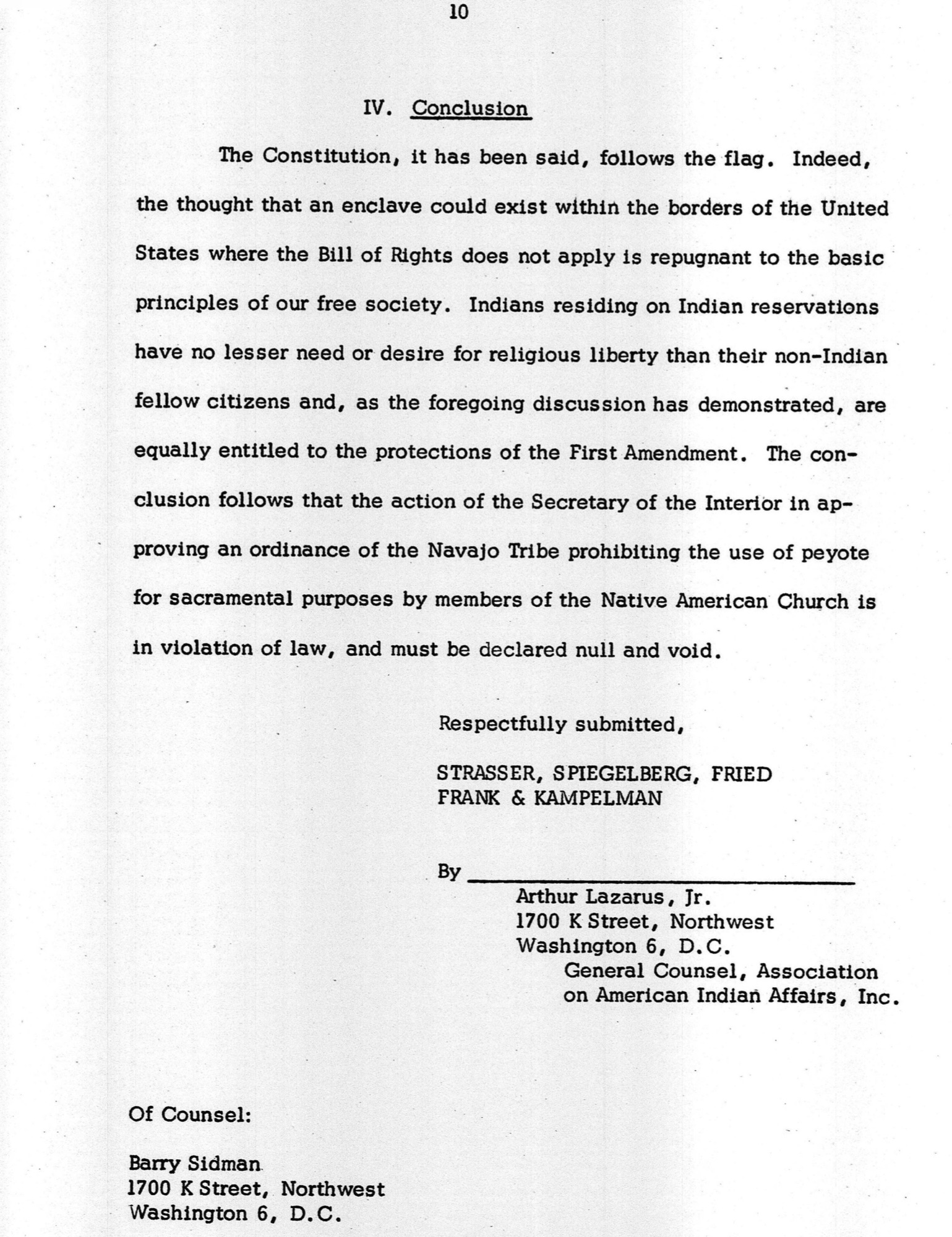Arthur Lazarus, the general counsel of the Association on American Indian Affairs (and the drafter of the original bill that became the Indian Child Welfare Act), filed amicus briefs in a suit by a Navajo tribal citizen challenging the power of the Secretary of the Interior to approve the Navajo Tribal Council’s ban on peyote use by the Native America Church. The case was filed as Oliver v. Seaton (D.D.C.):

The challenge really was against the Navajo ban, but Mr. Oliver challenged the Secretary’s approval of the ban, alleging that the approval violated the Exercise Clause. An important aspect of the AAIA’s amicus brief was that Talton v. Mayes, which seemingly held the federal Constitution did not regulate tribal power, did not govern the violation of “fundamental rights.”

There’s an interesting effort to compare tribal nations to the American territories here. We know from cases as recent as Puerto Rico v. Sanchez-Valle regarding Puerto Rico’s sovereignty that tribal sovereignty is more robust that Lazarus credits here. Note the conclusion, invoking the axiom that the “Constitution . . . follows the flag,” usually invoked in war crimes commission law like in the Guantanamo Bay cases.

Needless to say, the Navajo Nation was upset that the AAIA threw its support behind the Native American Church and not the tribe.

Mr. Oliver ultimately did not prevail. See Oliver v. Udall, 306 F.2d 819 (D.C. Cir. 1962).
You must be logged in to post a comment.